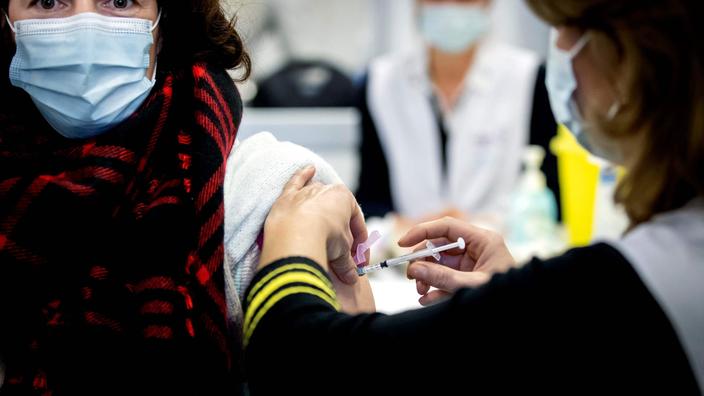The Covid pandemic has put public finances under pressure.
States have had to spend massively to manage the health crisis and limit the disastrous impact on the economy, on the income of businesses and households.
Support plans last year reached a record $ 14 trillion, the IMF (International Monetary Fund) said in its financial stability report on Thursday, up $ 2.2 trillion since the last assessment in October.
The resurgence of the virus in recent weeks has led to new restrictive measures and required the extension of aid.
This was the case in Europe for France, Spain, Great Britain and Germany as well as in Canada and the United States, where Congress approved new support in December equivalent to 4.3% of the GDP, which was in addition to the spring plans representing 14.8% of GDP.
The cumulative spending and the collapse of public revenues have exploded the global public debt to a record level of 98% of GDP, estimates the Monetary Fund, well above the threshold reached during the financial crisis of 2009. It is in developed economies, it is the largest, at 122.7%, ahead of emerging and middle-income countries (63.3%) then the low-income world (48.5%).
Record deficit
The crisis logically caused a surge in the global public deficit, from 3.8% of GDP in 2019 to 11.8%.
The richest countries, with greater financial leeway, saw their deficit widen to 13.3% against 3.3% in 2019. Compared to 10.3% for emerging countries and 5.7% for low income countries.
The IMF notes that half of the deterioration in public finances for developed economies is due to lower income and additional spending, while in poor countries it is mainly due to lower economic activity.
The United States and Canada are breaking record deficits, at 17.5% and 20% of GDP respectively.
While Ottawa posted a budget surplus in 2019.
With the recovery expected for this year, although surrounded by a lot of uncertainty related to the evolution of the epidemic and the acceleration of vaccination campaigns, the public finances situation should improve, also helped by the gradual cessation of emergency aid.
The IMF estimates that the public deficit will decline in three quarters of developed economies.
For France, it expects 7.7% after reaching 10.6% in 2020. Globally, the deficit will fall to 8.5% of GDP.
As for the debt, it will increase less strongly this year - 99.5% - and will stabilize in the medium term.
The report highlights the positive effect of “
debt services that will continue to fall
” thanks to very low interest rates in the markets at the same time as growth will improve.
Debt levels will, however, remain above pre-crisis levels over the medium term.
Attention, warns the IMF, for countries with a high debt and exposed to more difficult financing conditions.
They will have to put in place "
a credible medium-term budgetary framework
".
Help for the most vulnerable
The IMF stresses the need for international cooperation to ensure access to treatment and vaccines.
It also recommends maintaining aid to the most vulnerable households and businesses as long as the recovery is not on a solid path.
The IMF's general recommendation is to put in place policies that promote a “
sustainable
”
recovery
and facilitate the transformation towards a “
digital, inclusive economy
”.












